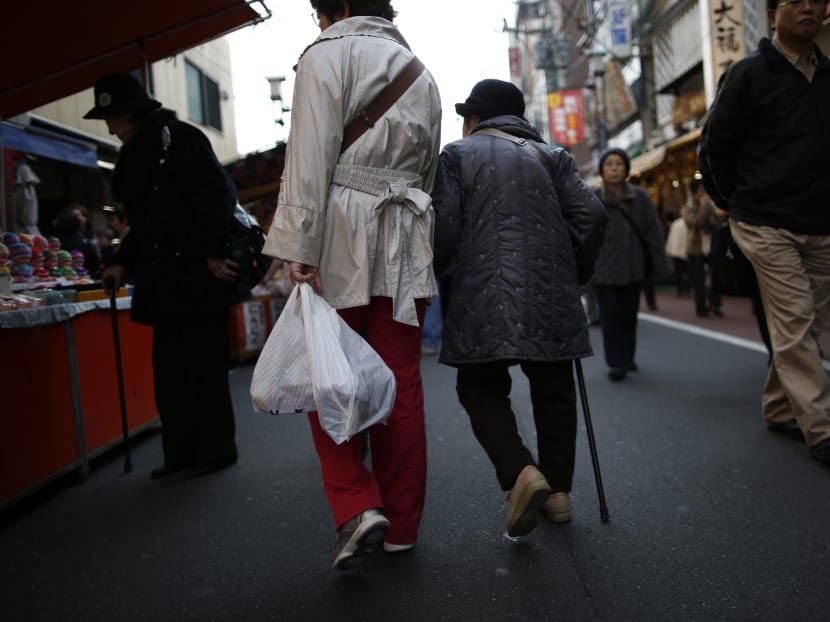“Fear of the future” fuels killings in Japan
TOKYO — More than a third of interfamily murders, attempted murders and fatal assaults in Japan in 2014 were motivated by “fear of the future’’, such as caring for elderly relatives or financial problems, police data released this week showed.

Parents were the most frequent victims of interfamily murders in Japan, an indication that many people are unable to cope with caring for their ageing family members, according to police data. Source: Reuters
TOKYO — More than a third of interfamily murders, attempted murders and fatal assaults in Japan in 2014 were motivated by “fear of the future’’, such as caring for elderly relatives or financial problems, police data released this week showed.
Parents were the most frequent victims, an indication that many people are unable to cope with caring for their ageing parents, according to the report, the first detailed breakdown of investigated cases for a full year.
Experts warned such cases may continue to increase in the future, saying many people are finding it hard to secure a slot in nursing care facilities in a fast-greying society.
The National Police Agency (NPA) data showed that of the 272 cases investigated, 168 were murders, 74 were attempted murders and 30 were assaults resulting in deaths.
A total of 33 per cent of the victims in the cases were parents of the assailants, followed by spouses at 27 per cent, and children at 25 per cent, it said.
When it came to motive, the largest proportion of cases, at 33 per cent, were committed out of “fear of the future”, stemming from such causes as exhaustions from taking care of their parents and children, as well as financial troubles. Relationship troubles came next with 25 per cent, followed by mental problems of the assailants at 21 per cent.
In 84 per cent of the cases, the victims and the assailants were living under the same roof, and in the cases in which the victims survived the attacks, 67 per cent continued to live together, the data showed.
Ms Fumiko Makino, who heads a non-profit organisation helping caregivers in Tokyo, describes people who attack their parents as “very serious and overly hardworking”, who become isolated both mentally and socially.
She said interfamily crimes could rise with tougher eligibility rules for nursing care insurance coverage and called for an increase in the number of professionals supporting caregivers.
A more general police tally for last year showed the number of cases investigated on suspicion of murders and attempted murders nearly halved to 770 from 1979 levels, but the number of interfamily cases, totalling 425 last year, has been broadly flat.
“Interfamily crimes are difficult to prevent as measures for curbing street crimes cannot be applied to them,” said a police official in charge of the analysis.
The NPA is also reviewing how benefits are disbursed to the crime victims, who include those who sustained major injuries or fell seriously ill as well as bereaved families.
In the past, the benefits have been withheld in the case of interfamily crimes, to prevent the money from ending up in the assailants’ pockets. The panel seeks to revise the rule to allow for case-by-case decisions. KYODO NEWS






